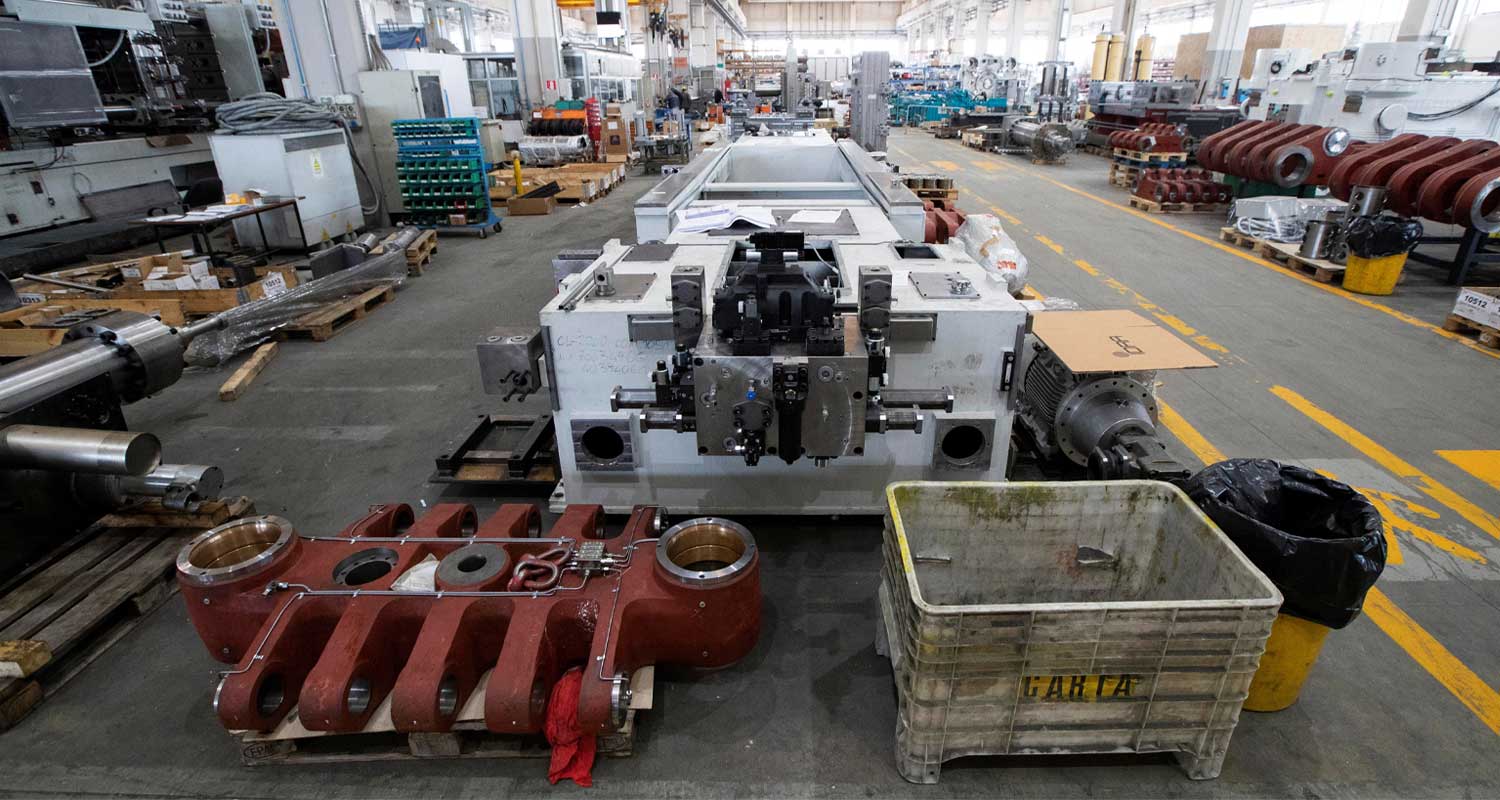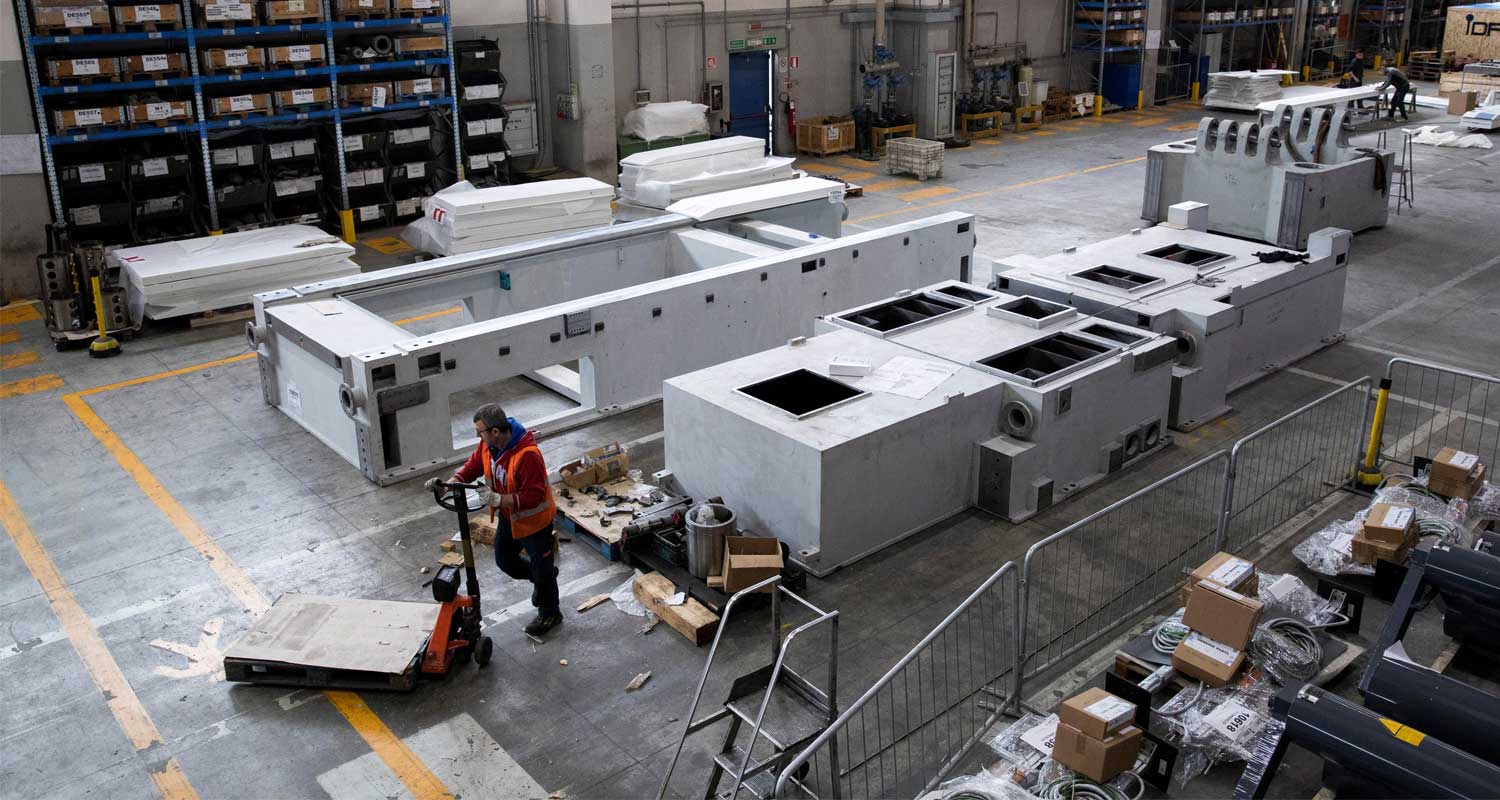
By replacing around 60 welded components with a single module, gigantic aluminium die casting machines made by the likes of Tesla supplier IDRA Group are helping car makers to simplify manufacturing and cut costs by up to 40% in some areas.
Tesla has pioneered the use of massive casting machines, also known as gigapresses, to make large single pieces of vehicle underbodies, streamline production and reduce the work of even robots. This has helped it become the most profitable battery electric vehicle (BEV) maker.
Critics say the process poses quality and flexibility risks, as a single flaw can compromise a whole module, and make fixing more difficult if something goes wrong.
But with the industry struggling to preserve profit margins amid surging raw materials prices, car makers including Toyota, General Motors, Hyundai, Volvo Cars and Chinese electric vehicle start-up Nio are turning to companies like IDRA for help.
“The basic idea was to provide a technology that could simplify the car production process,” IDRA GM Riccardo Ferrario said in an interview at the company’s headquarters in Travagliato, northern Italy.
Battery packs currently make up 25-40% of the total cost of BEVs. “You need to make the rest cost less,” Ferrario said.
Car makers using aluminium casting machines claim they can reduce investments needed to build chassis — a vehicle’s second most expensive component after the engine — by 40%, and the average cost of their parts by 30%, Ferrario said. “It’s a way to eventually make BEVs something for all pockets,” he said.
Relatively new
IDRA, which was taken over by Chinese group LK Industries in 2008, has been developing gigapresses since 2016. Competitors of IDRA and LK include Buhler Group in Europe, Ube and Shibaura Machine in Japan, as well as Yizumi and Haitian in China.
Metal and plastic die casting has been largely used in manufacturing, but its application to large aluminium underbodies in car making is relatively new. The global aluminium die casting market was worth almost $73-billion last year and is projected to top $126-billion by 2032, according to an AlixPartners analysis based on Apollo Reports data.
Aluminium is prized for its light weight, and is also used for other car parts including engines. The average content of the metal in European produced cars rose 20% to 179kg in the three years to 2019, and is expected to increase to almost 200kg by 2025, a study commissioned by lobby group European Aluminium shows.
IDRA’s newest and biggest gigapress — the 9,000 — is the size of a small house and produces a clamping force of over 9 000t.
The company, which made $108-million in revenues in 2021, does not disclose its customers. But after it posted a video of the first Gigapress 9,000 ready for shipping, Tesla CEO Elon Musk said it was for his company’s new Cybertruck.

Tesla already operates gigapresses in all its facilities, including in Gruenheide, near Berlin, where it says it can churn out a Model Y in 10 hours – about three times faster than electric cars built by competitors.
Ferrario said IDRA had contracts with three car makers and as many “tier-1” parts makers. South Korea’s Hyundai Motor is among them, sources familiar with the matter said.
Ralf Bechmann of manufacturing consultant EFESO said the benefits of die casting would push it “to be applied to an increasing number of new models of BEV vehicles, also by other manufacturers”.
Front and rear underbodies cast by gigapresses are now combined with battery packs to form a three-piece chassis for BEVs.
“I bet 80% of automakers will use gigapresses by 2035, at least for BEV cars based on new platforms,” Ferrario said. “But the real question is: will we need even bigger gigapresses?”
Backtracked
Yet not all motor manufacturers are convinced, and EFESO’s Bechmann cautioned that large module die casting required product design to be “super solid”.
“Fixing design flaws is much easier with a body made up of several small parts rather than a single module,” he said.
After initially considering die casting for its upcoming Trinity model, Volkswagen has backtracked, while BMW has never expressed an interest.
Read: A look at the massive Pretoria plant that will build the new Ford Ranger
Ferrario said the motoring industry tended to be conservative and that no one liked upending established processes, but he rejected the idea that die casting posed a risk to jobs at car makers, noting body-making was already highly automated. “The real issue will be with businesses supplying those little parts replaced by our modules,” he said. — Giulio Piovaccari, (c) 2023 Reuters

